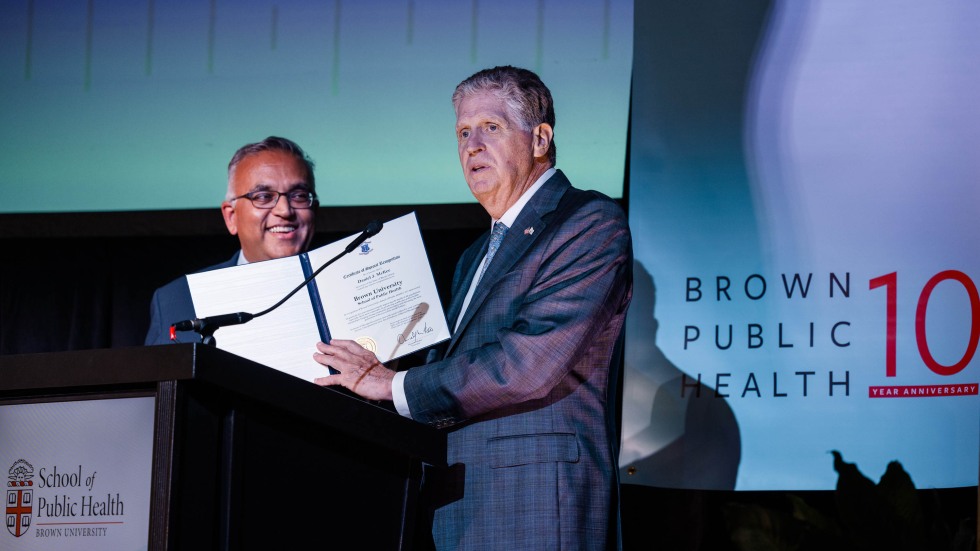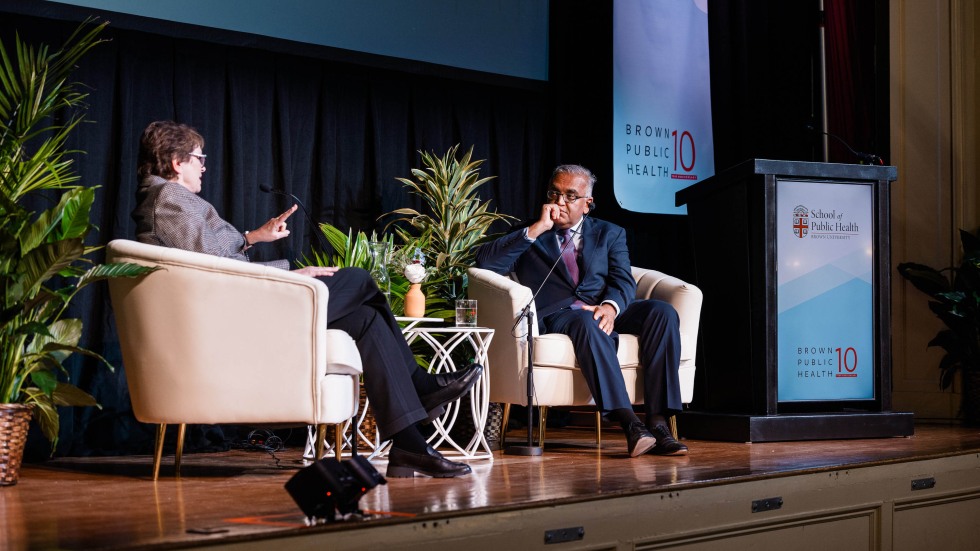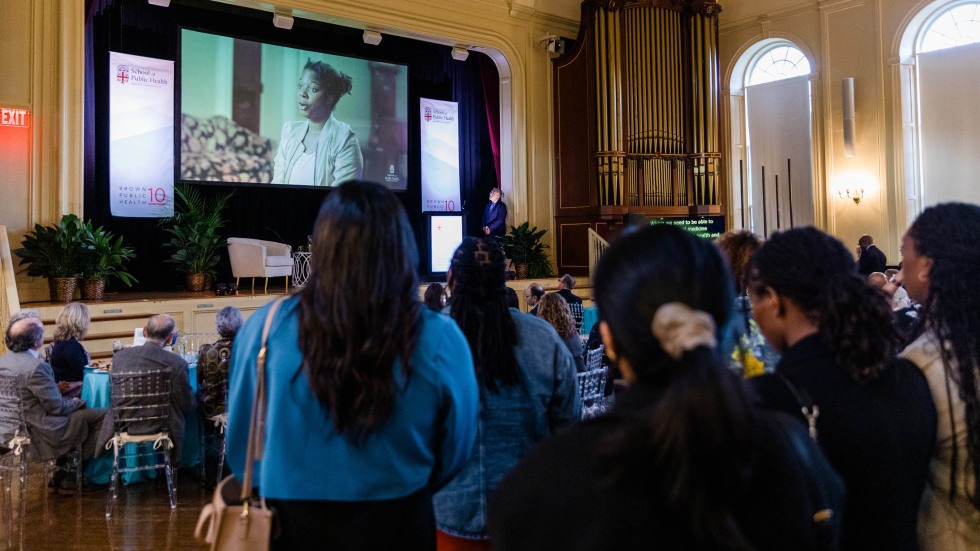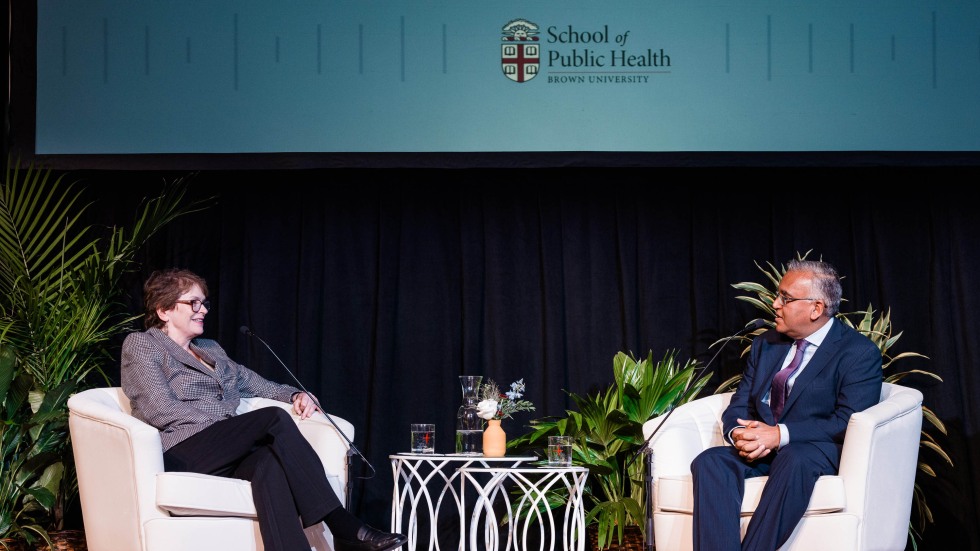PROVIDENCE, R.I. [Brown University] — It was perhaps the ultimate anniversary gift: During a celebratory event to honor a decade of impact by Brown University’s School of Public Health, Rhode Island Governor Daniel McKee presented the school with an official proclamation, signed on behalf of the state.
In a surprise announcement to a crowd of hundreds of members of the public health community, McKee explained that he was offering congratulations and good luck on behalf of not only state leaders, but also the people of Rhode Island.
“So understand that all the people in the state are backing this proclamation tonight,” McKee said. “Personally, I get to sign it in recognition of Brown University School of Public Health’s 10th anniversary and gratitude for your mission towards improving the health of all populations — especially those most vulnerable — by producing world-class public health scholarship, forging strong community partnerships and educating the next generation of diverse public health leaders.”
In addition, McKee reaffirmed the state’s commitment to supporting the mission of the school into the future, and to continue partnering with faculty and students to fulfill one of his top priorities, which is to improve the health and fitness levels of people in Rhode Island.
The governor was one of the community voices and partners to join Brown leaders, students, faculty, staff, alumni and others to celebrate the impact of the School of Public Health. The Wednesday, Sept. 27, event included a discussion on the past and future of public health and a showcase of the school’s research in Rhode Island and beyond. It served as the official kickoff to a year of public health-themed conversations, seminars, lectures and community gatherings.
The Corporation of Brown University recommended a graduate program in public health in 1916, but it wasn’t until 2013 that the Corporation voted to unite the University’s public health programs into a unified School of Public Health. The school has had four deans over its inaugural decade, all of whom attended the celebration: Dean Terrie "Fox" Wetle, Dean Bess Marcus, Dean Ashish K. Jha and Ronald Aubert, who served as interim dean in 2022 and 2023.





